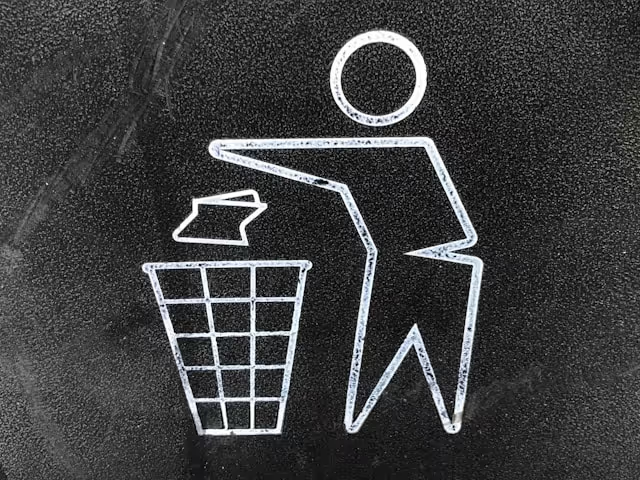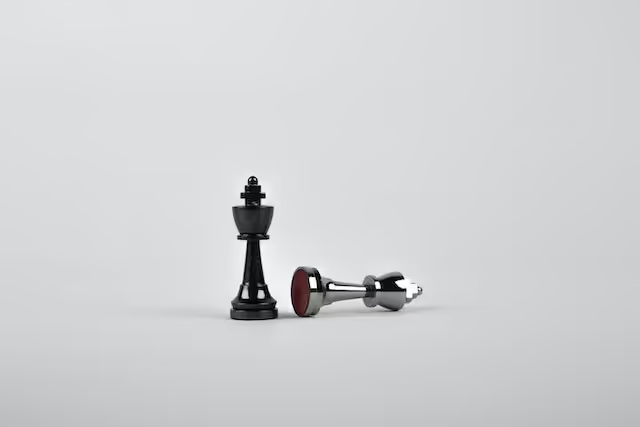
Blog
Is Cash Really Trash? When to Hold and When to Invest
Tumbling interest rates cause more punishment for savers as borrowers celebrate
It’s a mantra ingrained in us from childhood: Save money. Be frugal. Keep a rainy-day fund. For generations of New Zealanders, depositing cash in a high-interest savings account or a term deposit represented the very bedrock of prudence and financial security. It was simple, low-risk, and guaranteed a nominal return.
Yet, for those looking to genuinely build and preserve wealth, whether you are accumulating assets in your prime earning years or managing a substantial portfolio for retirement, that old wisdom has become a dangerous lie. Holding substantial cash outside of your essential liquid reserve is not a conservative strategy; it is a guaranteed loss of purchasing power. The mantra "cash is king" has been usurped by a new, more painful reality: in the long-term journey of wealth building, cash is trash.
The Unpleasant Arithmetic of Preservation
The fundamental flaw in the "cash is king" philosophy is its failure to account for two relentless, wealth-eroding forces:
- Inflation
- Taxation
The interest rate printed on your bank statement is a feel-good falsehood; what truly matters is the real return you receive after these twin economic forces are applied.
Let’s run the numbers using a scenario familiar to many New Zealand savers:
- Marginal tax rate: 33 percent
- Savings account or term deposit rate: 3 percent
- Inflation: 2.5 percent
The tax rate of 33 percent applies for many middle- and upper-income earners (though top earners pay even more: 39 percent!) and the example rate of inflation is within the target band of the central bank long-term inflation rate.
For this example, let’s assume you have $100,000 saved. You will receive $3,000 in interest each year, which doesn’t sound too bad at face value. However, you automatically pay about $1,000 in tax, which means you have $2,000 left. Then you need to factor in the real killer, inflation. Because of inflation, the purchasing power of your initial sum has declined by about $2,500. You may have made $2,000 but your money was devalued by even more, $2,500. That means your real rate of return is negative, about -0.5 percent!
You have successfully locked in a negative real return, even if your bank statements show a positive value.
“…the arithmetic makes it plain that inflation is a far more devastating tax than anything that has been enacted by our legislature [government]. The inflation tax has a fantastic ability to simply consume capital. It makes no difference to a widow with her savings in a five percent passbook account [savings account] whether she pays 100 percent income tax on her interest income during a period of zero inflation or pays no income taxes during years of five percent inflation. Either way, she is 'taxed' in a manner that leaves her no real income whatsoever. Any money she spends comes right out of capital. She would find outrageous a 120 percent income tax, but doesn't seem to notice that five percent inflation is the economic equivalent.” Warren Buffett
As the Oracle of Omaha, Warren Buffett, points out, the government doesn't need to explicitly charge you a 'wealth tax'; the currency itself does the job for them, quietly, efficiently, and legally. It’s the ultimate silent thief. If only the Inland Revenue Department (IRD) would send you an annual statement showing the 'Inflation Tax' you had paid, then perhaps people would treat cash with an appropriate level of disdain.
The Vanishing Value of Currency
In response to pandemic lockdowns, central banks the world over, stepped up to avoid a total economic calamity. They decided the economy needed a serious "liquidity infusion” with quantitative easing, which is a polite way of saying they fired up the digital printing press and flooded the world with currency. The goal was to support markets and avoid a crash, a noble cause. The more than slightly awkward side effect, however, is that every dollar you happen to have now buys less of absolutely everything.
They didn't burn your cash; they just created a lot more of it, forcing yours to compete, and making your savings quietly shrink away in a phenomenon we now call "transitory" inflation that lasted much longer than anyone thought possible.
The Vanishing Value of Currency
Recent drops in the Official Cash Rate (OCR), with suggestions from the Governor of the Reserve Bank of New Zealand (RBNZ) that it will go lower, creates a double-edged sword.
The lower OCR is great news for borrowers. However, it is not for those who may have been relying on income from cash in the bank and for those who have a low-risk attitude to investing for the long-term.
After a couple of years where interest rates looked appealing, the old saying of “cash is trash” is back with a vengeance. In other words, cash left in the bank as long-term savings gives a lacklustre return versus a well-diversified investment portfolio with a higher exposure to growth investments such as shares and property.
It wasn’t so long ago the last RBNZ Governor was openly discussing steps including negative interest rates. Adrian Orr, said before the pandemic "It is in the realm of possibility that [New Zealand] could use negative interest rates." Practically, that means negative interest on your savings in the bank, which means you would pay the bank to store your money. While this is now highly unlikely, the fact remains that cash is trash.
Over the five years from early 2020 to early 2025, the RBNZ’s own inflation data says the purchasing power of the New Zealand dollar has fallen by roughly 19 percent. In practical terms, this means $100 in 2025 buys about what $81 did in 2020. This erosion in value reflects cumulative inflation across the economy, and it underscores how persistently elevated price rises chip away at real incomes, savings, and the ability of households and businesses to plan over time.
Learn more:
- The tax on inflation
- Yesterday’s price is not today’s price
- The single tax
- What is the Reserve Bank of New Zealand?
- Millennials are the wealthy generation
Why Would New Zealand Interest Rates Fall So Fast?
Recent moves by the RBNZ confirms it is concerned with the impact on the New Zealand economy of falling business confidence, increased business failures, flatlining measures of productivity, and increased unemployment.
If you haven’t noticed, the economic pain is real.
So, interest rates are falling fast, and economic pundits and major financial institutions are forecasting they’re going to keep falling some way.
Cash and The Other Three Traditional Asset Classes
If cash is the default loser, what is the alternative? The answer lies in understanding and allocating capital across the four traditional asset classes. Each class serves a different purpose, carries a unique risk profile, and offers varied returns in the eternal battle against inflation and erosion.
When considering investments, professionals classify most investable assets into four broad buckets.
1. Cash and Cash Equivalents
Cash means money in your bank account or term deposits. It’s safe and easy to access.
- Primary Purpose: Liquidity, safety, and providing an emergency buffer.
- Risk Profile: Lowest.
- Historical Return: Historically below the rate of inflation after tax, making it a guaranteed long-term purchasing power loser.
- What it is good for: Paying immediate bills, maintaining a 3-6 month emergency fund, or holding funds earmarked for a specific purchase within the next 12-24 months (e.g., a car, a house deposit top-up). Beyond this, holding excess cash is a mistake.
2. Bonds (Fixed Interest)
Bonds are like loans you give to governments or companies. They pay you interest and are generally less risky than shares, but returns are usually moderate. Most individuals don’t buy bonds directly, they’re held in funds such as KiwiSaver, especially fund choices described by names such as conservative or moderate.
- Primary Purpose: Stability, income generation, and capital preservation.
- Risk Profile: Low to Moderate (depending on the issuer, e.g., government versus high-yield corporate).
- Historical Return: Generally provides a moderate nominal return, often aiming to match or slightly exceed inflation before tax. Returns are fixed, offering predictable income (coupon payments).
- What it is good for: Acting as the "ballast" in a diversified portfolio (Morningstar, n.d.) When growth assets like shares fall, bonds often hold their value or appreciate, reducing overall portfolio volatility. They are essential for retirees seeking reliable income streams. The main risk, beyond default, is interest rate risk; when interest rates rise, bond prices fall.
3. Property And Infrastructure (Real Assets)
Property includes real estate like houses or commercial buildings. It can grow in value and provide rental income, but it’s harder to sell quickly and needs big upfront costs. Some might include major infrastructure in this category, such as a toll road owned by a large corporation.
- Primary Purpose: Capital appreciation, inflation hedge, and potential rental income.
- Risk Profile: Moderate to High. Property is illiquid and highly susceptible to local market and regulatory changes (e.g., tax law, zoning).
- Historical Return: Strong capital gains over the long-term, particularly in OECD countries. Returns are often magnified by leverage (mortgages).
- What it is good for: Providing a tangible asset that is difficult to replicate (unlike printed currency). As the cost of building materials and labour rises with inflation, so too does the replacement cost of property, naturally linking its value to inflation. It provides a double whammy of returns when purchased with debt, the asset appreciates while the debt itself depreciates in real terms.
4. Shares. Also Known as Equities or Stocks
Shares are pieces of ownership in companies. They can grow your wealth the most over time, but prices can swing up and down a lot in the short-term.
- Primary Purpose: Capital growth and outperforming all other asset classes over the long-term.
- Risk Profile: High (short-term volatility can be significant).
- Historical Return: The highest long-term return asset class, historically averaging 7-10% annually over decades, which is well above long-term inflation rates.
- What it is good for: Investing in a company’s ability to grow, innovate, and generate cash flow. Unlike a term deposit, a company can raise prices to counter inflation (known as 'pricing power'), which protects and increases the real value of its earnings. Shares are the engine room of a wealth-building portfolio.
Generational Shifts and the Drive to Diversify
Understanding these four classes is crucial because, across the demographics we serve, different pressures have forced investors away from cash and toward other assets.
Younger Generations and Cash: Fuelled by Frustration, Drawn to Speculation
Among younger generations, particularly those who began their careers following the Global Financial Crisis (GFC) and during the subsequent decade of ultra-low interest rates and quantitative easing, the faith in traditional cash savings has evaporated. They watched as asset prices soared while their cash reserves barely budged.
This environment of near-or-below zero real returns has bred financial frustration, and when combined with high New Zealand house prices, has led many to lose faith entirely in traditional, diversified methods of wealth accumulation. Instead, many people in younger age brackets have been drawn toward speculative punts such as the volatile world of cryptocurrency or even modern versions of get-rich-quick schemes.
While we respect the innovation inherent in some decentralised technologies associated with cryptocurrency, relying on meme stocks or highly volatile digital assets for long-term wealth planning is closer to gambling than investing.
Learn more:
- Crypto in the firing line
- Millennials are about to be the richest generation in history
- What to do if you can’t afford a house
- Financial mistakes to avoid in your forties, fifties, and sixties
- The best investments for under 65-year-olds
Mature Investors and Cash
In the face of sub-par returns in cash, among more mature generations, property investment has been a long-running favourite. For decades, the adage “safe as houses” held true in most parts of New Zealand. The model was simple and powerful: leverage borrowed large sums of money, and as the asset (the house/rental) appreciated, the debt (mortgage) was simultaneously devalued in real terms by inflation. This often created a “double return” that was nearly impossible to beat.
However, the once-invincible New Zealand residential property market has recently taken a significant hit due to rapid interest rate hikes designed to combat inflation. This correction, combined with legislative changes targeting property investors (such as the removal of certain tax deductions), and a flagging post-pandemic New Zealand economy has served as a powerful reminder: nothing is risk-free.
This shift, and interest rates which are probably delivering below zero real returns, have combined to lead many more mature investors to seek investments in more internationally accepted methods of building then drawing down wealth: diversified portfolios of assets, including bonds and global shares. They are now looking beyond their geographical backyard and realising the immense power of owning fractional shares in global businesses (often via funds, including KiwiSaver Schemes) businesses that are inherently more liquid, offer greater pricing power, and operate across diverse economies, insulating the investor from the localised economic shocks such as natural and manmade disasters that can cripple a property-heavy portfolio.
The Lesson: Whether you are 35 or 65, the long-term goal of investing remains the same: achieve positive real returns. The only way to achieve this is through calculated risk and choosing asset classes that generate income and appreciate beyond the pace of the central bank's inflation target.
The Power of Pricing Power and Compounding
The core economic reason why assets such as shares in businesses beat cash is because businesses usually possess what economists call pricing power. This is the ability to raise prices without a significant loss of customers.
A share in a highly profitable, asset-light, blue-chip company (think of technology) has immense pricing power. If its input costs rise by five percent due to inflation, it can usually pass on that five percent cost, plus another one or two percent, to its customers without them switching providers. The real value of the business's earnings is preserved, and the shareholder benefits. Cash, by definition, has zero pricing power; its value is simply determined by its denomination.
How Will Lower Interest Rates Impact You?
The two most obvious ways are:
- Lower mortgage rates for borrowers, and
- Lower interest rates for those who are saving money in the bank.
This is why we’re already seeing increasing numbers of people who want us to help them with either of these areas.
The Bottom Line: Cash Is Trash
For too long, cash has been viewed as a zero-risk asset. In fact, it is an asset with a high degree of certainty of suffering a negative real return. Ironically, saving money as a long-term approach to financial freedom could be the biggest risk anyone takes!
For New Zealanders looking to safeguard or expand their long-term financial freedom, the prescription is clear:
- Only hold the cash you need for liquidity, your emergency fund, and immediate spending goals.
- Use the other three asset classes: Bonds, Property, and Shares as building blocks for the rest of your portfolio. Don't let your wealth be overly concentrated in any one area, including the domestic housing market.
- Ensure that the weighted, after-tax, long-term expected return of your entire portfolio substantially exceeds the rate of inflation.
This process usually requires a clear plan, a robust understanding of market cycles, and the disciplined execution of an evidence-based strategy.
The team at Become Wealth assists individuals and families in navigating these complexities every single day. If you are serious about protecting your purchasing power and building or sustaining your financial freedom, it would be our pleasure to discuss your circumstances in a complimentary and confidential initial consultation.
You may also like:

Home Values Fall Across the Country

Stocks vs Real Estate: Which Is Better?


